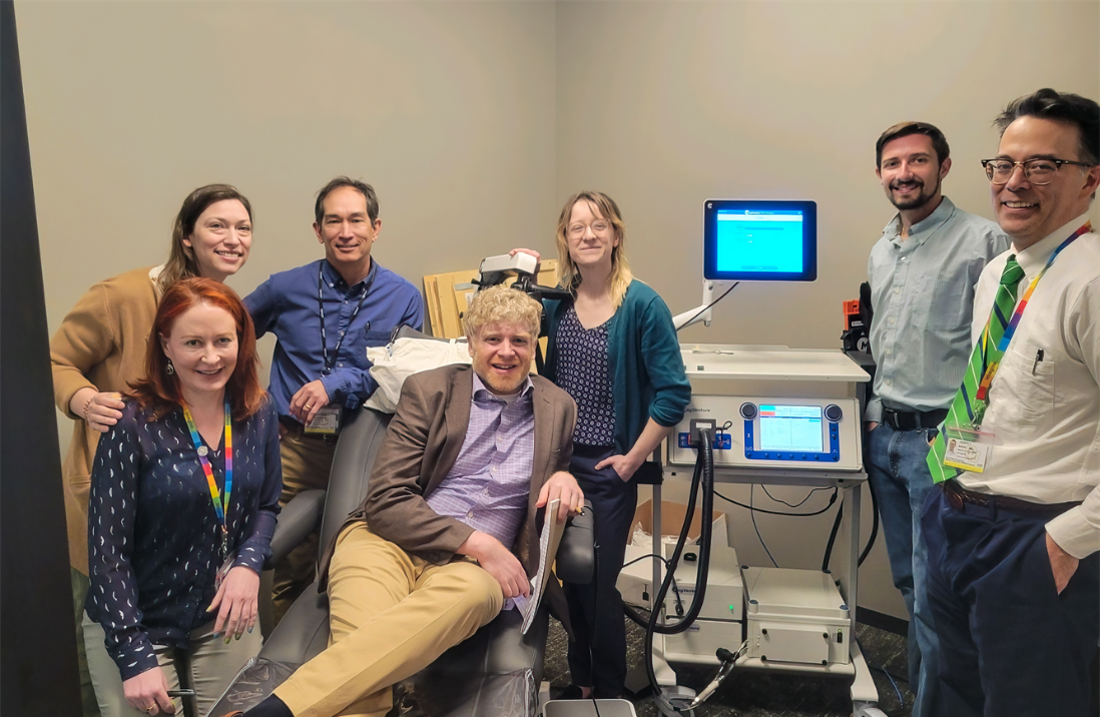About TMS
CU Anschutz School of Medicine Community Practice offers Transcranial Magnetic Stimulation (TMS), an FDA approved, safe and effective treatment for psychiatric conditions including depression, anxiety associated with depression and obsessive-compulsive disorder (OCD). TMS works by using MRI strength magnetic pulses to stimulate specific regions of the brain. It is an outpatient procedure that does not affect cognition so patients can leave the session without assistance and immediately resume their daily activities.
TMS is typically recommended when other treatments, such as medications and psychotherapy, have not been helpful. Approximately 50-60% of people with medication resistant depression will experience a clinically meaningful response with 20-30% reaching full remission, meaning complete resolution of symptoms. Since TMS does not involve the use of psychiatric medications, it is also considered in individuals who have difficulties tolerating antidepressants due to side effects.
Location
The TMS Clinic is located on the 5th floor of the Anschutz Health Sciences Building. Patients will check in at the Johnson Depression Center.
TMS Clinical Team
TMS Psychiatrists:
Assistant Professor of Psychiatry
Medical Director, TMS Clinic
Associate Professor of Psychiatry - Division of Addiction Science, Prevention & Treatment
Director of Medical Student Education, Department of Psychiatry
Associate Professor of Psychiatry and Neurosurgery
Vice Chair for Clinical Affairs and Strategy
Service Director, Psychiatric Neuromodulation
Medical Director, OCD Program and Co-director, OCD Surgical Program
Assistant Professor of Psychiatry – Center for Women's Behavioral Health and Wellness
Professor, Psychiatry - Adult Psychiatry
Division Director, Adult Psychiatry
Medical Director, Helen and Arthur E Johnson Depression Center
Behavioral Health Director, UCH IDGP/HIV Clinic
Senior Instructor in Psychiatry – Consult-Liaison Psychiatry
TMS Technicians:
Christine Dimino, Kaiden Brown, and Aspen McLean

Transcranial Magnetic Stimulation (TMS) Clinic